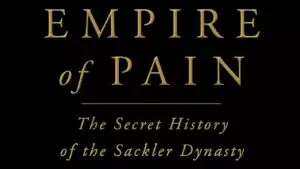By Jo Caird

✅ AI Essay Writer ✅ AI Detector ✅ Plagchecker ✅ Paraphraser
✅ Summarizer ✅ Citation Generator
2008 was the 50-year anniversary of the publication of Things Fall Apart, the book that is widely regarded as the first African novel. Its Nigerian author, Chinua Achebe, turns 80 this year. His output has been spectacular, in both scale and quality, including novels, children’s books, collections of short stories and poetry, academic essays, and political commentary. The Education of a British-Protected Child, a collection of autobiographical essays written by Achebe between 1988 and 2009, does not explicitly set out to celebrate these anniversaries, but that is exactly its effect. A relatively slim volume of just 16 short pieces, Education succeeds not only in enlightening the reader on a wide range of topics relating to colonialism and decolonisation, African literature and contemporary race relations, it provides a distillation of this great man’s philosophy that is both humbling and inspiring.
In his ‘Preface’, Achebe writes of the difficulty of selecting from the many important events and individuals in his life when it came to pulling this collection together. Realising how much he will be forced to leave out, he describes the ‘entire scheme for this collection’ as ‘untenable’. We expect Achebe to go on to lay out a revised structure before us, but this does not happen. Just acknowledging the impossibility of containing an entire life within one book of essays somehow solves the problem. He just gets on with it.
This example is illustrative of Achebe’s modus operandi: by adopting a pragmatic and forward-looking approach to difficult issues, political, social, and moral debates are demystified, and the reader is presented with ways of thinking that appear to offer the possibility of overcoming all the world’s evils.
Several of the essays in the collection offer us insights into Achebe’s upbringing and adult family life. Raised by Christian missionary parents in the midst of a traditional Igbo community, Achebe was made aware early on of the cultural, political, and linguistic complexity that characterised 20th-century Nigeria. The collection’s title essay sets out Achebe’s ‘fundamental objection to colonialism’ through reference to his school and university days. Despite Achebe’s explicit statement of his wish to avoid ‘giv[ing] a discourse on colonialism’ (p4), this essay is a powerful declamation of the evils of a system that ‘was essentially a denial of human worth and dignity’ (p22). What is so effective about Achebe’s writing is his ability to transmit the urgency of these issues to his readers. The arguments he offers here and elsewhere in this collection are not new, but by personalising them and tying them into his own experience, Achebe causes us to re-examine our attitudes towards them.
‘Africa is People’ is a case in point. This essay from 1998 addresses the way the international community regards the African continent. We in the West have become so familiar with the semantic pairing of ‘Africa’ and ‘poverty’ that we have allowed ourselves to become lazy in our thinking about the place and its peoples. ‘If poverty springs so readily to our minds when we think about Africa, how much do we really know about it?’ (p162). What Achebe argues so persuasively for is proper understanding as well as political and economic policies that acknowledge Africa’s enormous potential and provide it with the opportunity for self-development.
Achebe makes reference to the thinking of Gandhi, Martin Luther King, James Baldwin, and David Livingstone in his discussions of how Africa should engage (or not) with its colonial past, and considers how their messages can help us move forward. The short 1992 essay ‘Martin Luther King and Africa’ is a poignant reminder of the necessity to stay vigilant against ‘fear and prejudice and all the other frailties of our human condition’ (p137).
‘Politics and Politicians of Language in African Literature’ is an insightful and irreverent summary of the debate surrounding the use of English as the language of African literature. Those familiar with this topic will enjoy this 1989 essay as a witty refresher, and anyone unaware of the debate but interested in world literature would do well to begin their research here. Included too is a little essay entitled ‘Things Things Fall Apart’, a charming reflection on the international influence of the novel that made him famous.
As in Things Fall Apart, Achebe draws on traditional African sayings, tales, and songs throughout the collection, revealing a rich culture that Achebe himself has been instrumental in opening up to the Western and pan-African reader. By referring to the sophisticated philosophical frameworks underpinning different African tribal cultures—the Bantu saying he quotes on p136, ‘A human is a human because of other humans’, is a particularly good example of this—Achebe diminishes the perceived gap between African and Western sensibilities: there is no room for the ‘us and them’style thinking in our newly globalised society.
A 1988 essay entitled ‘The University and the Leadership Factor in Nigerian Politics’ perhaps surprisingly offers a message directly applicable to the current moment in British politics. ‘Leadership is a sacred trust, like the priesthood in civilised, humane religions’, Achebe writes. ‘No one gets into it lightly or unadvisedly, because it demands qualities of mind and discipline of body and will far beyond the need of the ordinary citizen. Anybody who offers himself or herself or is offered to society for leadership must be aware of the unusually high demands of the role and should, if in any doubt whatsoever, firmly refuse the prompting’. (p.143) The subject of discussion in this essay is the failure of leadership in Nigerian politics and the knock-on effects of this failure on society as a whole, but Achebe’s universal philosophy takes in so much more, allowing us to apply these comments to a situation occurring thousands of miles away and two decades into the future. His writings should be on a list of required reading for all those thinking of taking up office—perhaps then we might end up with a political class ready to treat the electorate with the respect it is due.
In the end, what makes Achebe so readable and his work such a valuable resource when it comes to thinking about colonialism, race relations, international relations, or literature is the humanity that suffuses his writing. Born a ‘British-protected’ Christian member of the Igbo tribe, educated courtesy of a colonial-controlled Nigerian state, now resident in the United States of America and well respected in the international literary and academic community, Chinua Achebe belongs to and is claimed by many groups. By drawing on the positive aspects of each of these areas of experience, but ultimately refusing to be limited by their boundaries, Achebe brings these disparate worlds together in his work, creating a literary voice that speaks to and of humanity. He is a writer to be treasured and respected.
———–
Written under a Creative Commons license, with edits: https://creativecommons.org/licenses/by/1.0/
Follow us on Reddit for more insights and updates.





Comments (0)
Welcome to A*Help comments!
We’re all about debate and discussion at A*Help.
We value the diverse opinions of users, so you may find points of view that you don’t agree with. And that’s cool. However, there are certain things we’re not OK with: attempts to manipulate our data in any way, for example, or the posting of discriminative, offensive, hateful, or disparaging material.